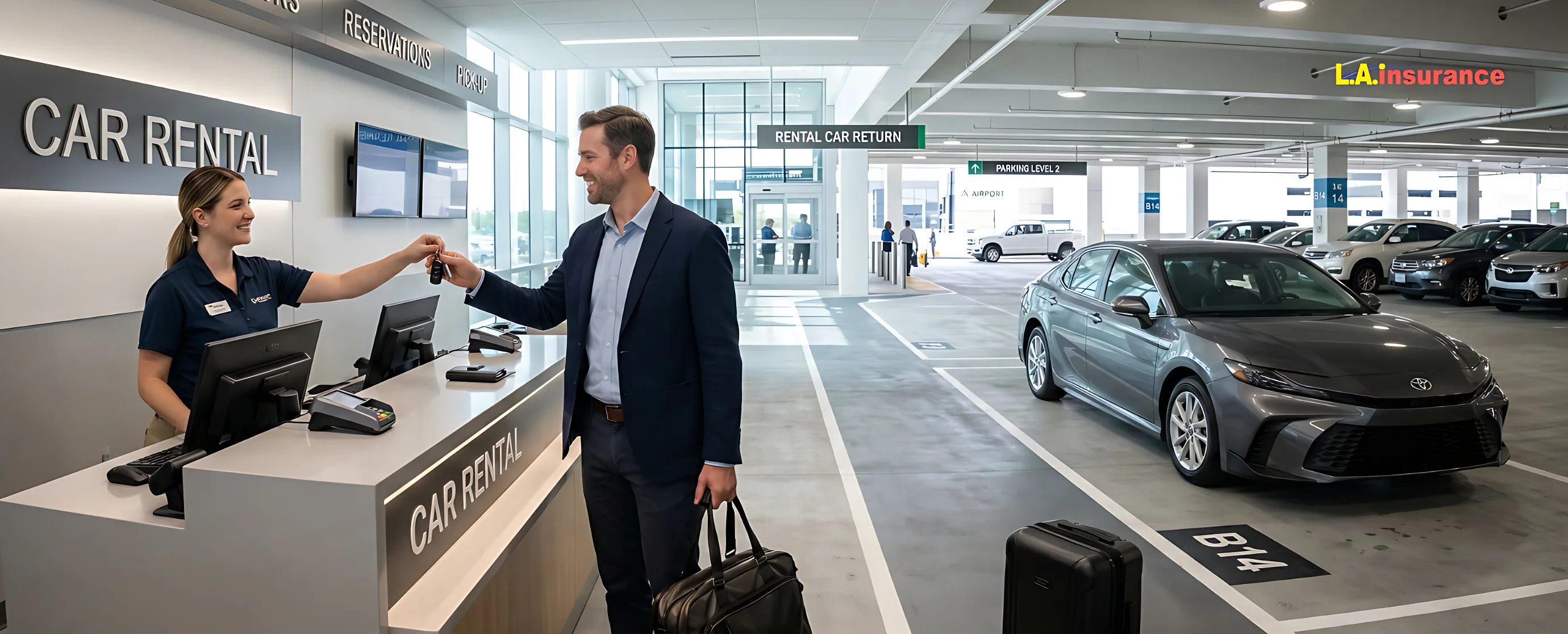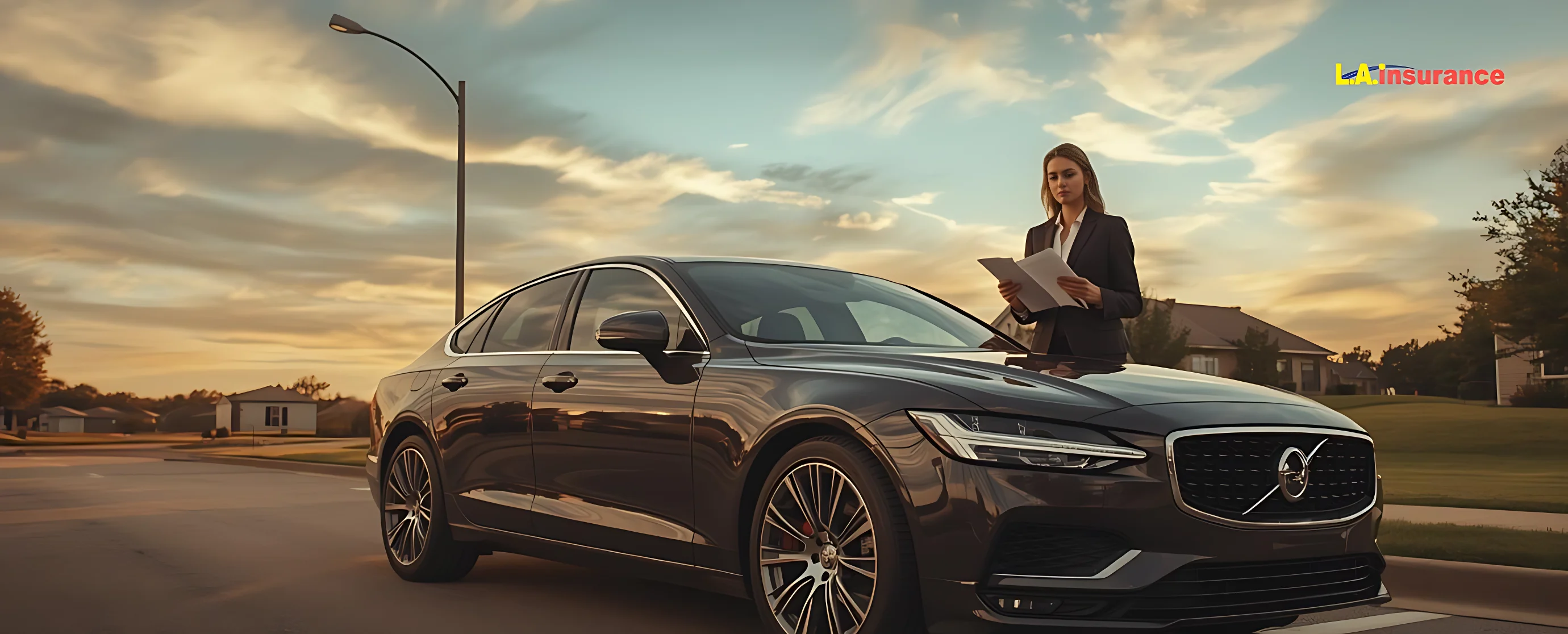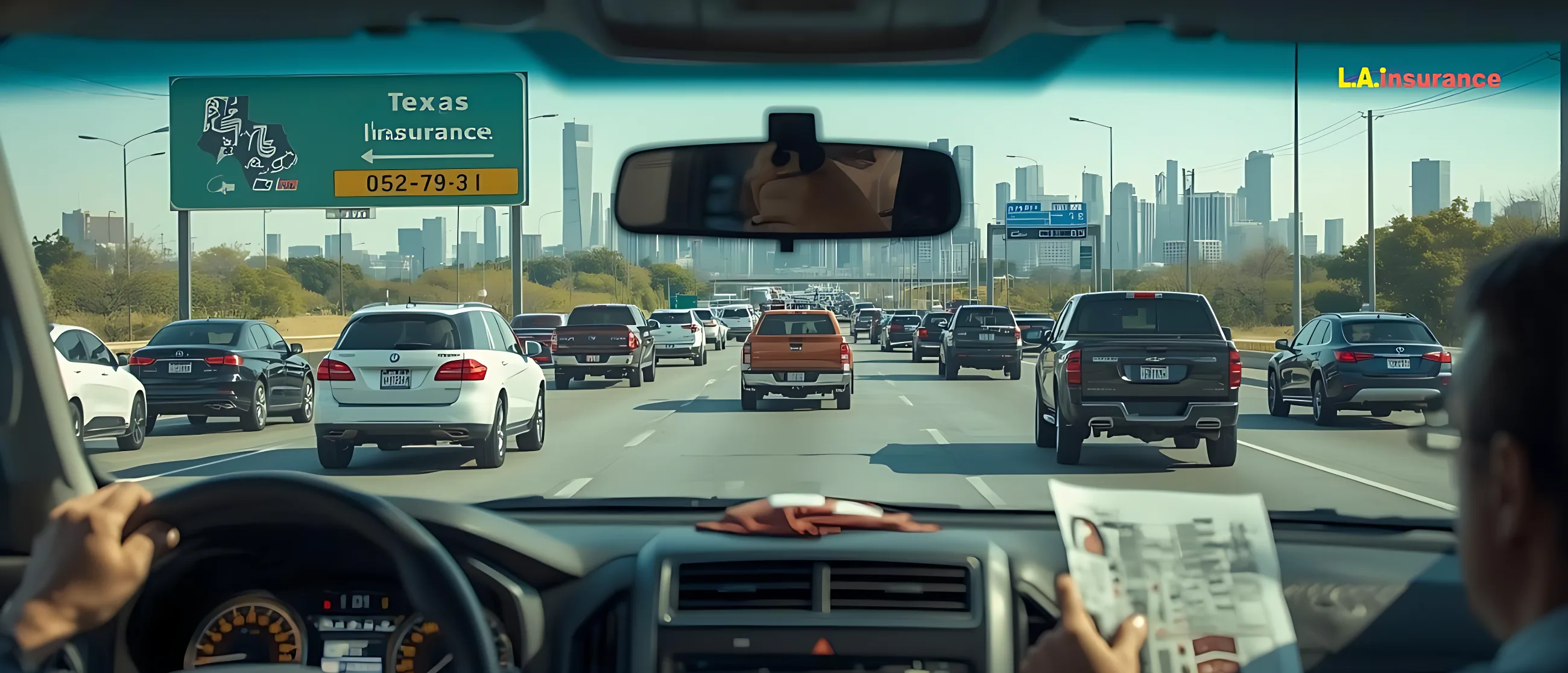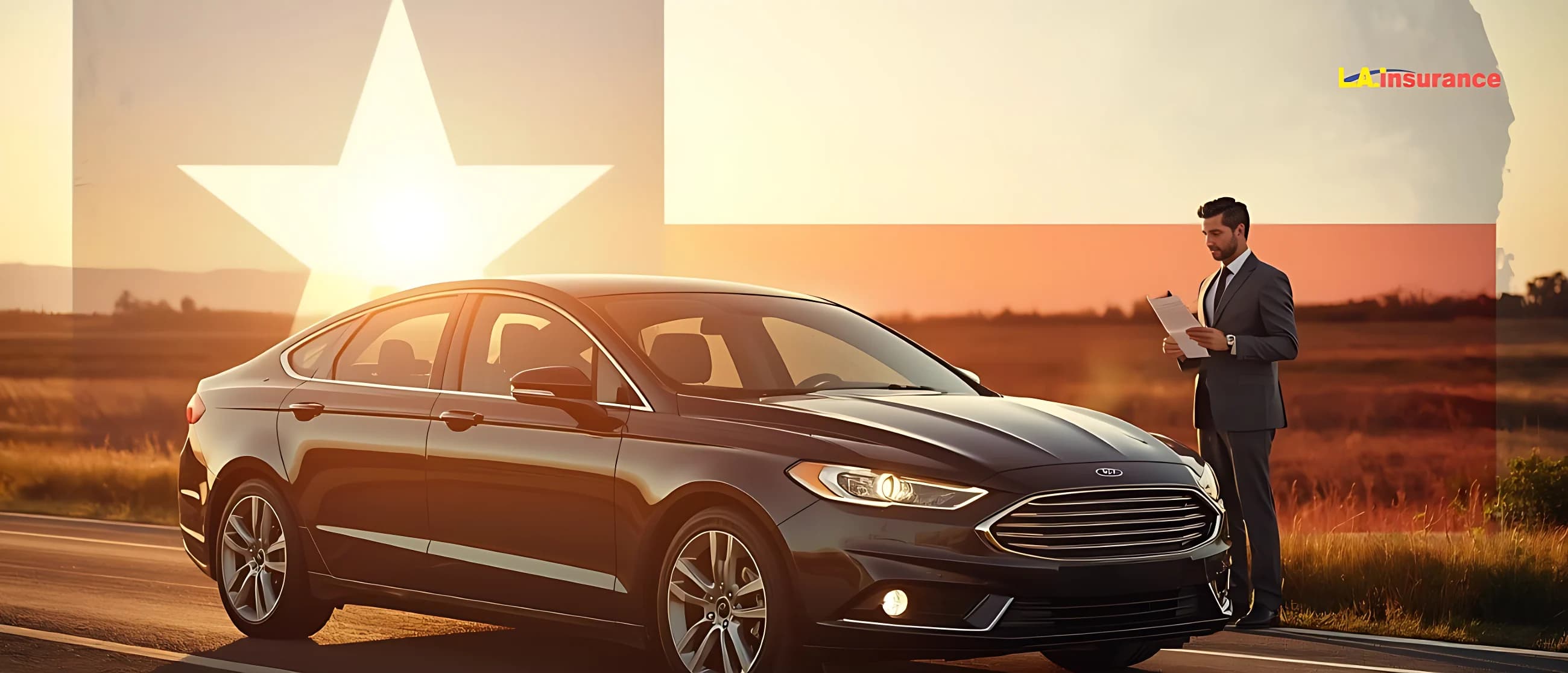
Publish Date: 08-02-2025
Auto Insurance
Last Updated: 17-12-2025
How Does Marital Status Affect Car Insurance Costs?
A married driver in the U.S. pays around 15% less for car insurance in most states than a single driver. Why? Because insurance companies believe married people take fewer risks behind the wheel. They file fewer claims and have fewer accidents.
But what if you’re single, divorced, or widowed?
Unfortunately, your premiums might be higher. Some insurers even increase rates by 20% for widows. Sound unfair, right? The truth is marital status plays a major role in pricing. But don’t feel bad! There are ways to lower your car insurance costs.
Keep reading this article to learn how marital status affects your auto insurance rates, how much married, single, divorced, and widowed drivers pay for car insurance, joint vs. separate car insurance policies for couples, state regulations regarding married vs. single insurance pricing, and the best ways to get cheaper and reliable auto insurance regardless of marital status.
How Does Marital Status Affect Car Insurance Costs?
Marital status is one of the factors that affect your car insurance premiums. It can directly affect how much you pay for car insurance.
Insurers often consider married drivers to be lower risk compared to single drivers. Studies show that married individuals file fewer claims than single, divorced, or widowed drivers.
Consequently, they are involved in fewer accidents. As a result, they typically enjoy lower auto insurance premiums. In fact, married couples pay $149 less per year than single, divorced, or widowed drivers according to the insurance rate comparison site The Zebra. On average, married drivers pay about 5% to 10% less for the same coverage than single drivers. According to Bankrate, married couples pay 6% less for full coverage and 5% less for minimum coverage. This means if a single person pays $2,100 (national average rate) for full coverage vehicle insurance, a married person will pay roughly $1,974.
See the table below to better understand how average car insurance rates vary by relationship status compared to the national average base price:
Marital Status | Annual Cost for Full Coverage | Increase Over Married Drivers |
Married | $2,100 (national average) | N/A |
Single/Separated | $2,289 to $2,415 | 9% to 15% |
Widow | $2,189 to $2,520 | 20% (Rates vary by insurers) * |
Why Do Married Drivers Pay Less and Single Drivers Pay More?
You might think that it's unfair to set insurance rates based on someone's marital status. But that's not always true; it's not a random pricing decision. It's based on risk assessment and statistical data. Insurance companies analyze years of claim reports and accident records to determine which groups of drivers are more likely to file claims.
So, why exactly do married drivers get lower premiums compared to single, divorced, or widowed drivers? Things are quite obvious here! Single drivers are seen as riskier, while married drivers are viewed as comparatively safer by insurers.
Studies show that married people get into fewer accidents than single drivers. A 2004 research on motor vehicle injuries from New Zealand found that never-married drivers were twice as likely to suffer injuries in car accidents compared to married drivers.
Another study from Tehran reported that single drivers were 1.5 times more likely to be involved in traffic accidents. This data inevitably raises the auto insurance rates for single drivers since insurers perceive them as riskier on the road.
Also, according to a study conducted by the Consumer Federation of America (CFA), insurance rates increase on average by 20% for widows and the rate can go up to 226%. They found that 4 out of 6 major insurance companies charge this higher rate for widows. The study, which researched insurance rates based on relationship status in 10 different U.S. cities, found that single, divorced, or widowed drivers consistently pay more for auto insurance than married couples.
A 2004 study on “emotional stress and traffic accidents: the impact of separation and divorce” published by the National Library of Medicine indicates that marital separation or divorce, as well as other significant life events like a child leaving home, important purchases, and partner hospitalization, are associated with an increased risk of serious accidents.
Another 2000 study on “motor vehicle crash fatalities” from the University of California, Riverside, published by Science Direct, suggests that divorce can be a stressful life event, which might leave some people temporarily unable to operate automobiles safely.
Insurance companies assume that married individuals take fewer risks behind the wheel. This belief is backed by accident statistics showing:
- Married drivers are less likely to drive recklessly.
- They are less likely to drive under the influence.
- They tend to follow traffic laws more consistently.
Meanwhile, divorced and widowed drivers may experience stress and stress-related distractions that increase their accident risks (via CFA).
Research by Car and Driver also suggests that in a household with multiple drivers, each person spends less time on the road. Lower mileage means a reduced chance of accidents, and to reflect this, insurers often reward married couples with lower rates.
Insurance companies also associate financial stability with lower accident risks. Married couples are more likely to own property, have dual incomes, and bundle insurance policies, which make them more responsible customers.
- They are less likely to let their policy lapse.
- They often qualify for bundled policy discounts (e.g., multi-vehicle, home + auto).
- They may purchase higher coverage limits, which insurers prefer.
- They are most likely to have higher credit scores.
In contrast, single drivers are seen as riskier and more prone to accidents. They file more claims than married individuals typically do. That's why insurers generally charge them slightly higher rates. Also, Insurers use the research and data to justify lower rates for married drivers and higher rates for single, divorced, or widowed drivers.
How Much Is Car Insurance for Married Couples Vs. Single VS. Divorced Vs. Widows in 2025?
Top insurers charge married couples $508 for minimum coverage and $1,652 for full coverage which is less than the national average. The following table shows the average annual car insurance costs by marital status:
Marital Status | Average Annual Cost for Full Coverage | Average Annual Cost for Minimum Coverage | Compared to Married Drivers |
Married Couples | $1,652 | $508 | Best rates (lowest) |
Single | $1,900 | $584 | 15% higher ($248 more) for full coverage, 15% higher ($76 more) for minimum coverage |
Divorced | $1,900 | $584 | 15% higher ($248 more) for full coverage, 15% higher ($76 more) for minimum coverage |
Widows | $1,718 to $1,982 | $528 to $609 (vary by insurers) | 4% to 20% higher ($66 to $330 more) for full coverage, 4% to 20% higher ($20 to $101 more) for minimum coverage |
Source: Bankrate, The Zebra, and Consumer Foundation of America (CFA)
Joint Vs. Separate Car Insurance Policies for Couples
Getting married brings many financial changes, including decisions about car insurance. A common question couples have is whether to combine their policies or keep them separate. Combining policies often saves money, but it may not always be the best choice. Let’s look at when it makes sense to combine policies and when it’s better to keep them separate.
Should Married Couples Combine Policies?
Most married couples can save money by combining their auto insurance policies. Insurance companies offer discounts when two drivers share a policy, especially if they have clean driving records.
Here's why combining policies is a good idea:
- Multi-Car Discounts: Many insurers offer lower rates when two cars are insured under the same policy.
- Easier Management: One policy means fewer renewal dates and payments to track.
- Additional Discounts: Some companies give extra savings when bundling home and auto insurance.
- Lower Premiums: If both spouses have good driving histories, they’ll likely pay less together than separately.
Here’s when keeping a joint policy is the best idea:
- Both spouses have clean driving records with no accidents or traffic violations
- Both have good credit scores
- They own multiple vehicles
- They want simpler policy management with one renewal date and one payment
- They plan to bundle policies for extra discounts
- They drive similar types of vehicles with low insurance risks.
- They live at the same address, which most insurers requires for joint policies
- They share similar driving habits that reduce the risks of high premium increases
Please note that not all couples benefit from a joint policy. In some cases, keeping separate policies is smarter. If you are still in doubt, you can talk to our auto insurance agent about whether it is beneficial for you to keep joint policies.
When Does It Make Sense to Keep Separate Policies?
Sometimes, combining policies can increase premiums instead of lowering them. Here’s when separate policies might be the better choice:
1. One Spouse Has a Poor Driving Record: If one spouse has accidents, tickets, or DUI convictions, a joint policy will raise the total premium. High-risk drivers cost insurers more, so their bad record impacts both drivers. Learn how driving records affect car insurance rates.
2. One Spouse Drives a High-Risk Vehicle: Luxury cars, sports cars, and certain high-performance vehicles cost more to insure. If one spouse owns a high-risk vehicle, it might be cheaper to insure it separately. Ask your insurance agent about whether you could save money in this situation or not. You can read about how a car’s make and model affect car insurance rates.
3. One Spouse Has Poor Credit: Some insurers use credit scores to set rates. If one spouse has low credit, a joint policy may increase the total premium. In this case, keeping policies separate can help you save money. Get more insights on how credit score affects your auto insurance rates.
4. Significant Age Difference: If one spouse is much younger, their rates may be higher due to less driving experience. Because a driver’s age has a huge impact on car insurance rates. That’s why maintaining a separate policy could prevent the older spouse’s rate from increasing.
Joint Policy Vs. Separate Policy: How to Make the Right Decision
Each couple's situation is different. Here’s how to decide whether to get a joint auto insurance policy or a separate policy
- Get Separate Quotes: Compare Joint Vs. Separate policy costs from multiple insurers.
- Consider driving history: If one spouse has a poor record, separate policies may be better.
- Check Vehicle Type: If one car is high-risk, insuring it separately could save money.
- Ask About Discounts: Some companies offer better multi-car savings than others.
Legal and State Regulations on Marital Status and Car Insurance
Car insurance companies use marital status as a factor when determining rates. Despite the controversy, most states still allow insurers to charge different premiums for married, single, divorced, or widowed drivers. However, some states have restrictions to ensure fairness in pricing.
Is It Legal for Insurers to Charge Different Rates Based on Marital Status?
Yes, in most states, insurers can legally charge different rates based on marital status. They argue that married drivers pose a lower risk because they file fewer claims and get into fewer accidents.
Insurers justify discounts for married couples by associating them with the following behaviors:
- Responsible behavior
- Reduced mileage
- Safer driving habits
- Financial stability
However, marital status is just one of many factors influencing rates. In states where gender and marital status are restricted from rate-setting, other factors like credit score and driving history weigh more heavily.
Some consumer advocacy groups argue that this pricing method is unfair, especially for widows and divorced individuals. As mentioned earlier, a 2015 study from the Consumer Federation of America (CFA) found that some insurers increase rates for widowed drivers by up to 226%.
Here are examples of states where marital status affects car insurance costs:
- Texas: Insurers can charge higher rates for single or divorced drivers.
- Colorado: Insurers can consider marital status, but the pricing must be based on actuarial data and widowed drivers cannot be charged higher premiums solely because of their status.
- Florida: Marital status cannot be the sole factor, but it still plays a role.
- New York: Insurers can use marital status if backed by statistical data.
- Oregon and Virginia: Marital is allowed if actuarial data supports it.
Which States Prohibit Using Marital Status in Pricing?
Some states have already banned or restricted insurance companies from using marital status when setting car insurance rates. These states require insurers to base prices only on driving-related factors.
- Hawaii fully bans the insurers from using marital status for setting insurance rates.
- Michigan fully bans the use of marital status in insurance rate calculations.
- Massachusetts fully prohibits pricing differences based on marital status.
- Maryland partially bans the use of marital status; they prohibit premium increases for widowed drivers.
- New Jersey partially prohibits the use of marital status for auto insurance costs by preventing rate increases due to a spouse’s death.
- Delaware partially bans the use of marital status where insurers cannot use credit scores based on marital status.
- Pennsylvania law prohibits insurance companies from using gender or marital status to set rates.
These states require insurers to base pricing on driving history, miles driven, and experience rather than non-driving or personal factors like marital status, or gender.
How to Get the Best Car Insurance Rates Regardless of Marital Status
Although it may seem unfair that car insurance companies charge slightly higher rates for single, separated, or widowed drivers compared to married couples— and most states legally allow this— you can still save money. Whether you’re married or single, there are smart ways to lower your insurance premiums. Here's how to get the best car insurance rates, regardless of your marital status:
1. Compare Multiple Insurance Quotes: Never settle for the first quote. Different companies weigh marital status differently, so shop around. Some insurers offer better rates for single drivers, while others charge widowed drivers less.
2. Maintain a Clean Driving Record: If you have a spotless driving history, it means insurers will consider you a low-risk profile which lowers your rates eventually. So, avoid speeding tickets, accidents, and DUIs. In case you have past violations, take a defensive driving course to lower rates.
3. Improve Your Credit Score: Many insurers use credit scores to determine premiums. A higher score means lower risks and indicates better financial stability. This can lead to cheaper insurance rates. We would recommend paying your bills on time, reducing debt, and checking your credit report for errors if you want to acquire an excellent credit score.
4. Choose the Right Coverage: Different types of car insurance coverage are available, but you don’t have to add each one of them to your policy. Try to avoid paying for coverage you don’t need. Check your policy regularly. You can also choose to drive an older car and skip comprehensive and collision insurance (if not too necessary) to pay less for car insurance. However, full coverage is best if you own a new and expensive vehicle.
5. Look for Discounts: Many auto insurance companies offer discounts that can save you hundreds of bucks including multi-car discounts, safe driver discounts, bundling discounts, and low-mileage discounts. Check with your preferred insurance agency to learn about whether you qualify for any of these discounts.
6. Join a Multi-Car or Group Policy: If you share a household with family members, consider a multi-car policy. Some insurers also offer group discounts through employers, alumni associations, or professional groups.
7. Work with an Affordable Insurance Agency: Choose the most affordable insurance agency in your area that doesn’t use non-driving factors like marital status or gender for setting insurance rates. If you’re in Michigan, Colorado, Texas, Arizona, Georgia, Florida, or Nevada, choose L.A. insurance. We are based in Detroit, Michigan, and have been serving for 33 years. We specialize in low-cost full coverage auto insurance for all drivers— married, single, separated, or widowed.
Car Insurance Rates Based on Marital Status: The Bottom Line
Car insurance rates should reflect driving behavior, but marital status still has an impact. On average, married drivers pay up to 15% less, while widow drivers see increases of astonishingly high percentage. But is that always fair? Despite some statistics, not all single or divorced drivers are high-risk. Regardless of relationship status, safe driving factors should matter more than non-driving factors!
Read more about car insurance costs in our articles:
- How much is car insurance?
- Average car insurance rate by gender
- How Does Your Location Affect Car Insurance Rates?
- How Does Annual Mileage Impact Car Insurance Rates?
- How Much Is Car Insurance in Michigan?
- 17 Ways to Lower Your Car Insurance Rate
Frequently Asked Questions (FAQs)
Will my car insurance go down if I'm married?
Yes, most insurers offer lower rates for married drivers. On average, married drivers pay up to 15% less than single drivers (Via CFA). Insurance companies see them as lower-risk meaning fewer claims and crashes, which leads to cheaper premiums.
Can I exclude my spouse from my car insurance in Florida?
Yes, in Florida, you can exclude your spouse from your policy. However, if they drive your car and get into an accident, your insurance won’t cover the damages. Check with your insurer before making the decision.
Is it better to be married or unmarried for car insurance?
Being married is better for car insurance costs. Married drivers get lower rates because insurers assume they drive more cautiously. Unmarried, divorced, or widowed drivers often pay more sometimes by 6% to 20% or by hundreds of dollars per year, depending on the insurer.
What other factors influence the rate someone pays for their car insurance?
Car insurance rates are affected by several factors besides marital status. Your driving history, credit score, age, gender, location, and type of vehicle all play a role. More accidents or traffic tickets lead to higher costs. A low credit score can raise your premiums. On the other hand, safe drivers, those who drive less, and people who bundle their insurance policies usually pay less.
References:
- Lynch, A., & Balasco, R. (2025, January 28). Car insurance rates by Marital/Familial status. The Zebra. https://www.thezebra.com/auto-insurance/driver/status/
- Van Keuren, M. (2025, January 9). Cheapest car insurance for married couples. Bankrate. https://www.bankrate.com/insurance/car/married-couples/#does-being-married-get-me-better-car-insurance-rates
- Whitlock, G., Norton, R., Clark, T., Jackson, R., & MacMahon, S. (2004). Motor vehicle driver injury and marital status: a cohort study with prospective and retrospective driver injuries. Injury Prevention, 10(1), 33–36. https://doi.org/10.1136/ip.2003.003020
- Consumer Federation of America. (2015, October 15). New research shows that most major auto insurers vary prices considerably depending on marital status · Consumer Federation of America. https://consumerfed.org/press_release/new-research-shows-that-most-major-auto-insurers-vary-prices-considerably-depending-on-marital-status/
- Car Insurance Married vs. Single: Everything You Need to Know. (2021, March 12). Car And Driver. https://www.caranddriver.com/car-insurance/a35824548/car-insurance-married-vs-single/
- Lagarde, E., Chastang, J., Gueguen, A., Coeuret-Pellicer, M., Chiron, M., & Lafont, S. (2004). Emotional stress and traffic accidents. Epidemiology, 15(6), 762–766. https://doi.org/10.1097/01.ede.0000142140.77194.ad
- Kposowa, A. J., & Adams, M. (1998). Motor vehicle crash fatalities: The effects of race and marital status. Applied Behavioral Science Review, 6(1), 69–91. https://doi.org/10.1016/s1068-8595(99)80005-1
- Van Keuren, M. (2025, January 9). Cheapest car insurance for married couples. Bankrate. https://www.bankrate.com/insurance/car/married-couples/
Editorial Disclaimer
The information provided on this blog is for general informational purposes only and does not constitute professional insurance, legal, or financial advice. Coverage and rates are subject to individual eligibility, underwriting guidelines, and state availability. For specific questions regarding your policy or to get an accurate quote, please contact a licensed L.A. Insurance agent directly. We're an independent agency and not a direct insurance carrier. For more information on how we operate and handle your data, please see our Terms and Conditions and Privacy Policy.
Tag :
Auto insurance
fast car insurance
cheap car insurance








